
Episode #160 – Who Knows Toronto?
In this SUPER SIZED season finale Sebastian explores the many myths and misconceptions about the city of Toronto. In his attempt to get a deeper understanding of the city he has called home, our host embarks on a series of probing conversations with a handful of Toronto storytellers. Author and feature writer Katie Daubs, Toronto educator Bryan Tran, Toronto Star investigative journalist Brendan Kennedy, local music legend Dave Bidini, and Governor General’s Literary Award finalist Liselle Sambury all pop by to share their thoughts on the city of Toronto. (more…)
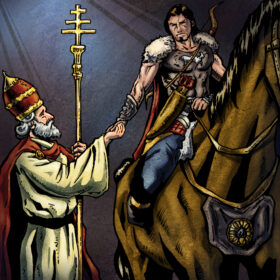
Episode #159 – How Should We Remember Attila the Hun? (Part III)
In the stories of saint’s lives written in the medieval era Attila the Hun was often used as a stock villain. He was called the “Scourge of God” and was understood as a blunt instrument used by God to punish the impious and test the resolve of martyrs. But, Attila certainly did not see himself as the tool of a Christian God that he did not worship. These medieval hagiographies presented Attila as one of history’s most brutal monsters, but is that reasonable? Attila was an ambitious conqueror who sacked and looted his way across Europe, but does that make him all that different from the Caesars? (more…)
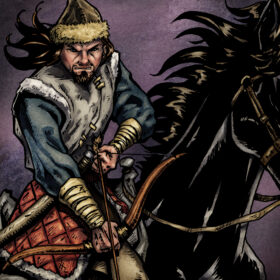
Episode #158 – How Should We Remember Attila the Hun? (Part II)
The Huns were not a literate culture, which means their version of history was never written down. As a result we rely on sources written by outsiders to trace the rise of the Hunnic empire and the career of King Attila. This means that the record is patchy, incomplete, and deeply affected by the anti-Hun prejudices of the authors. But despite that, there are still a number of remarkable stories that have survived in the historical record that help us get a more nuanced picture of Attila the Hun. The man had a truly ferocious reputation and yet he could also be gracious, merciful, and patient. Attila was certainly no stranger to violence, but he was also no mindless brute. Does he deserve to be cast as one of history’s great villains? (more…)
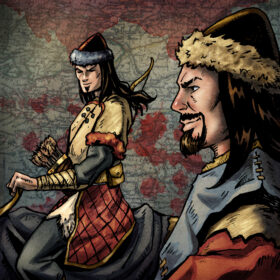
Episode #157 – How Should We Remember Attila the Hun? (Part I)
Attila the Hun has been saddled with a truly terrible historical reputation. In many parts of the world his name is synonymous with barbarism. But, despite the fact that Attila the Hun has excellent name recognition for an ancient historical figure, the details of his life remain obscure to most. Like most conquerors, opinions on Attila swing widely depending on which side of those conquests your ancestors happened to be on. Was Attila a bloodthirsty sadist or a noble nation builder? Can you be both? (more…)
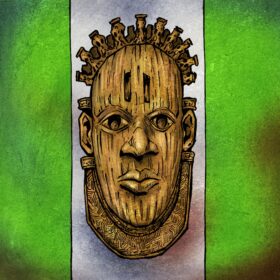
Episode #156 – What Became of the Benin Bronzes? (Part III)
In the last year the global conversation around the fate of the Benin Bronzes has shifted dramatically. In April of 2021 the German government announced that the vast majority of Benin Bronzes kept in German museums will be returned to Nigeria. This announcement was followed by a rash of other institutions making pledges to return objects that had been plundered from the Kingdom of Benin. Most recently, in March of 2022, America’s Smithsonian institute pledged to return it’s entire collection of Benin Bronzes. However, the one institution that has yet to commit to returning it’s plundered artefacts is the British Museum, which holds the world’s largest collection of Benin Bronzes. (more…)
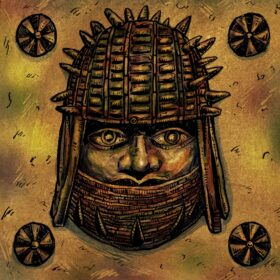
Episode #155 – What Became of the Benin Bronzes? (Part II)
In 1897 Queen Victoria marked her diamond jubilee and Britain was in a celebratory mood. The British Empire had never been stronger. Few could few imagine that this world-spanning empire might very well be peaking. But in 1897 Britain was in no mood for painful self-reflection. Instead Britons were gaily celebrating the what they perceived to be the “triumphs” of empire. Earlier that year a British punitive expedition sacked the West- African city of Benin. The victorious Brits carried off thousands of priceless cultural treasures, many of which were then displayed as trophies of war and instructive curios at the British Museum. The British press had painted Benin City as a hopelessly “savage” place, but these artworks instead reflected a society of great sophistication and artistic skill. (more…)
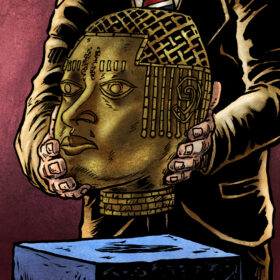
Episode #154 – What Became of the Benin Bronzes? (Part I)
Looting has been a part of warfare since the earliest times. Despite the fact that looting was common for much of history, it was always recognized as an especially harmful and humiliating by-product of armed conflict. By the late 19th century, the looting of sacred objects and culturally significant works of art was widely considered a war crime and was forbidden by a number of international treaties. But despite these high minded treaties, the treasures of Indigenous people, Africans, and South Asian people were still considered “fair game” by European colonialists. In 1897 the British returned from the West African Kingdom of Benin with a remarkable haul of looted art of religious objects. Many of these objects, known collectively as the Benin Bronzes, are still in Britain today as part of the collection held by the British Museum. (more…)
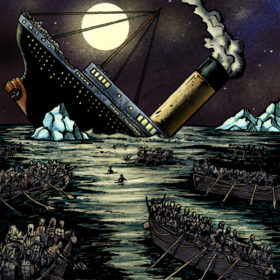
Episode #153 – What Is The Titanic Myth? (Part III)
The Titanic myth isn’t really built on lies, so much as a series of amplified “half-truths”. Stories about the Captain imploring his crew to “Be British” and the band playing even as water sloshed around their waists, all helped make the disaster feel meaningful. These stories helped turn a tragedy into a triumph. Contradictory accounts were often ignored, or faded into obscurity, when they didn’t fit with the myth. It should come as no surprise that the Titanic has also been the subject of an elaborate conspiracy theory. Which stories should we believe? (more…)

Episode #152 – What Is The Titanic Myth? (Part II)
When the wreck of the Titanic claimed over 1500 lives in 1912 the tragedy seemed too full of irony and meaning for it to be simply a freak accident. Surely someone was to blame. There had to be villain. Since that time many figures have been put forward as the villain of the Titanic story. Can responsibility for this disaster be laid at the feet of a reckless captain or a greedy businessman? Or even better, was the Titanic actually the victim of 3000 year old Egyptian priestess? (more…)
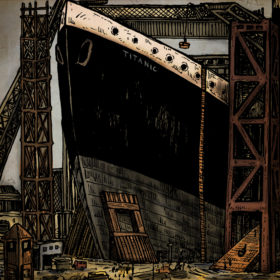
Episode #151 – What Is The Titanic Myth? (Part I)
The sinking of the RMS Titanic is one of the best remembered nautical disasters in history. Over 1500 passengers died after the luxury ocean liner struck an iceberg and sank to the bottom of the North Atlantic in April 1912. Since that time there have been many more disasters at sea that have been deadlier and arguably more historically consequential. And yet, all of those subsequent tragedies are still dwarfed in public memory by the Titanic. (more…)
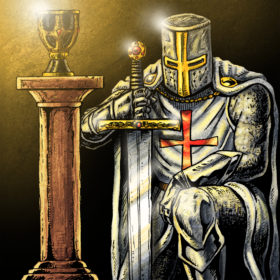
OFH Special Presentation – What Should We Believe About the Knights Templar? (Part II)
In this OFH Special Presentation Sebastian pulls a little something out from behind the Patreon paywall. What was once a massive extra episode on the history and weird mythology of the Knights Templar is now being presented as a two part series for the wider OFH audience. Founded in the aftermath of the first crusade, this order of warrior monks would eventually become one of the most wealthy and influential organizations in the medieval world. However, the Templars’ sudden fall from grace in early 14th century would create a mystery that future generations couldn’t help but try and solve. How was it that a group of medieval knights became the topic of so much modern conspiracy writing? (more…)

OFH Special Presentation – What Should We Believe About the Knights Templar? (Part I)
In this OFH Special Presentation Sebastian pulls a little something out from behind the Patreon paywall. What was once a massive extra episode on the history and weird mythology of the Knights Templar is now being presented as a two part series for the wider OFH audience. Founded in the aftermath of the first crusade, this order of warrior monks would eventually become one of the most wealthy and influential organizations in the medieval world. However, the Templars’ sudden fall from grace in early 14th century would create a mystery that future generations couldn’t help but try and solve. (more…)
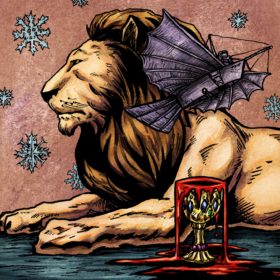
Episode #150 – Why Didn’t You Tell Us That?
Over the course of 150 episodes there have been theories, stories, and sidebars that have fallen through the cracks. Tales that don’t quite fit the main thrust of an episode sometimes get cut for time. Interesting, but obscure, takes on historical controversies can go unexplored. Sometimes Sebastian will learn a great story about a figure only after he has wrapped a series on them. These odds and ends are usually left to languish in podcast limbo. Today Sebastian celebrates 150 episodes by taking a look back and rescuing some of these orphan stories from the void. (more…)
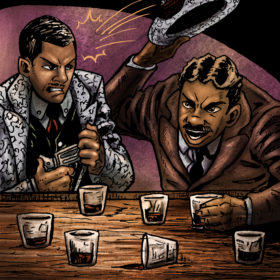
Episode #149 – Who Was the Real Stagger Lee?
The character of Stagger Lee has been one of America’s most enduring folk heroes. There have been over 400 songs written about the swaggering, gun-toting, bad man. He has gone by many names: Stacks Lee, Stagolee, Staxs O’Lee. Sometimes he is presented as a malevolent villain, others a heroic defender of the oppressed. No matter the telling Stagger Lee is always a badass. Is this figure just a piece of fiction dreamt up by blues musicians and perpetuated by their rock’n’roll progeny? Or was there a real man behind the murderous myth? Tune-in and find out how Biggie Smalls, 19th century fightin’ words, and a milk white stetson hat all play a role in the story. (more…)
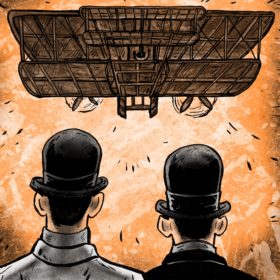
Episode #148 – Who Was First in Flight? (Part III)
In 1906 Alberto Santos-Dumont performed a number of short flights in front of a large crowd in Paris. These were done in his newly constructed heavier-than-air flying machine, the No.14-Bis. After these successful hops newspapers roared that Santos had once again “conquered the air”. Until at least 1908 he was widely recognized as the inventor of the first airplane. Now very few remember the achievements of Santos-Dumont outside of his native Brazil. What changed? (more…)
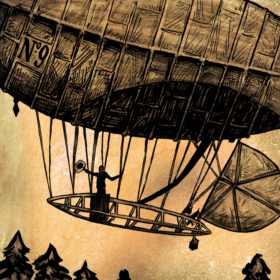
Episode #147 – Who Was First in Flight? (Part II)
The late 19th century in France sometime gets called La Belle Époque or the “Beautiful Era”. As the name suggests, this is a time that has been fondly remembered as an age of optimism marked by artistic and scientific triumphs. However, this era is also sometimes called the Fin De Siecle. When this nickname is evoked it’s usually to cast this era as a cynical and pessimistic time, when people openly fretted about how different the 20th century would be from the 19th. This period was also marked by the first attempts at controlled manned flight. Perhaps the contrasting Belle Époque and Fin De Siecle attitudes can act as a helpful analogy to help understand the “lighter-than-air” and “heavier-than-air” approach to flight? (more…)
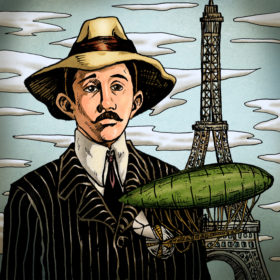
Episode #146 – Who Was First in Flight? (Part I)
In mythology from around the world the ability to fly was reserved strictly for the gods. Stories about human beings constructing flying machines were usually punctuated with a moral about hubris. Vain attempts at flight were an easy metaphor for the limits of human ingenuity. Even in the late 19th century, when technology was progressing quickly and inventors were becoming celebrities, those who devoted themselves to flying machines were written off as daredevils or cranks. However, the stigma did not deter a handful of obsessed would-be aeronauts. Around the turn of the century a number of inventors from different corners of the world raced to be the first in flight. (more…)

Episode #145 – Real Gryphons?
The legendary hybrid creature known as the gryphon was said to have the body of a lion and the head and wings of an eagle. Despite this fantastical descriptions the ancient Greeks and Romans truly seemed to have believed that gryphons were real animals. It was thought that gryphons lived in arid steppes and deserts of central Asia where they guarded stashes of gold. Stories of gryphons made their way to Mediterranean by way of the nomadic Scythian people, who hunted for gold in the gryphon’s homeland. Stanford Professor Adrienne Mayor thinks she may have solved the mystery of this puzzling creature. (more…)

Episode #144 – Who Was the Mother of Empires? (Part III)
Eleanor of Aquitaine has been called the “Queen of the Troubadours” by fawning biographers. She has been credited with transforming medieval European culture through her patronage of the arts. It’s also been written that she presided over elaborate “Courts of Love” where she made rulings on matters of the heart. However, this image of Eleanor may just be another aspect of the so-called “Golden Myth”. (more…)

Episode #143 – Who Was the Mother of Empires? (Part II)
When the King and Queen of France went on crusade in 1147 it nearly destroyed their marriage. The campaign led by King Louis VII and Eleanor of Aquitaine was an unmitigated disaster. But despite (or perhaps because of) it’s failure the Second Crusade would remain a potent part of Eleanor’s legend. It was rumored that she dressed like an Amazonian Queen and carried on affairs with everyone from the Muslim General Saladin to her own Uncle. (more…)

Episode #142 – Who Was the Mother of Empires? (Part I)
Eleanor of Aquitaine is one of the best remembered medieval Queens. She has been celebrated as one of the most daring and consequential women of her age. But despite her fame Eleanor is often misunderstood. Some writers have sullied Eleanor’s historical reputation by spreading scandalous rumours about the Queen. Other writers, in an attempt to revive her reputation, have overcorrected and have presented her as a completely exceptional “woman out of time.” These two skewed understandings of Eleanor have been called the “Black Legend” and the “Golden Myth.” Is it possible to bring some balance back to our understanding of Eleanor? (more…)
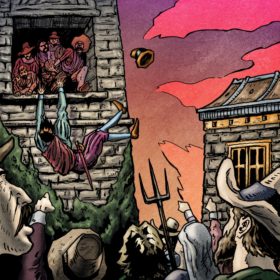
Episode #141 – Who’s Afraid of the 30 Years War? (Ft. Zack Twamley)
The 30 Years War has reputation among history buffs as one of the most complicated conflicts you can study. Even though the war is filled with fantastic stories, it can sometimes scare away history podcasters (like Sebastian). The complexity of the war makes it difficult to break down simply and clearly. Luckily, in this episode Sebastian is joined by the one podcaster who has managed to bring the war to life, host of When Diplomacy Fails, Zack Twamley.
(more…)
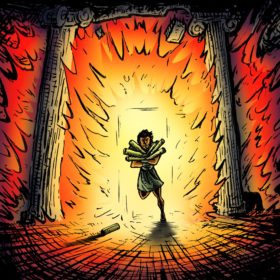
Episode #140 – What Became of the Great Library of Alexandria? (Part II)
There are three main culprits in the alleged burning of the Great Library of Alexandria. But weirdly they all lived roughly 300 years apart from one another. How is that even possible? It’s weird anomalies like this that complicate the history of the Great Library. Many have written poetically about the dramatic burning of this ancient institution, but is this cataclysm just an elaborate myth? (more…)
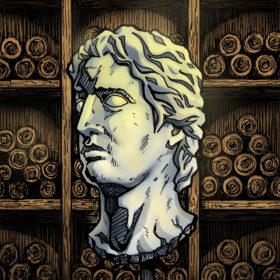
Episode #139 – What Became of the Great Library of Alexandria? (Part I)
The Egyptian city of Alexandria was once the most magnificent city on the Mediterranean. It was a city of wonders, whose culture was the envy of the Greek world. Tragically many of Alexandria’s ancient treasures have been lost to time. Of all of these lost wonders none has been more deeply mourned than the Great Library of Alexandria. For generations people have lamented the day that the Library was consumed by fire. But when was that day exactly? It turns out the time and circumstance of the Library’s demise is surprisingly controversial. (more…)

